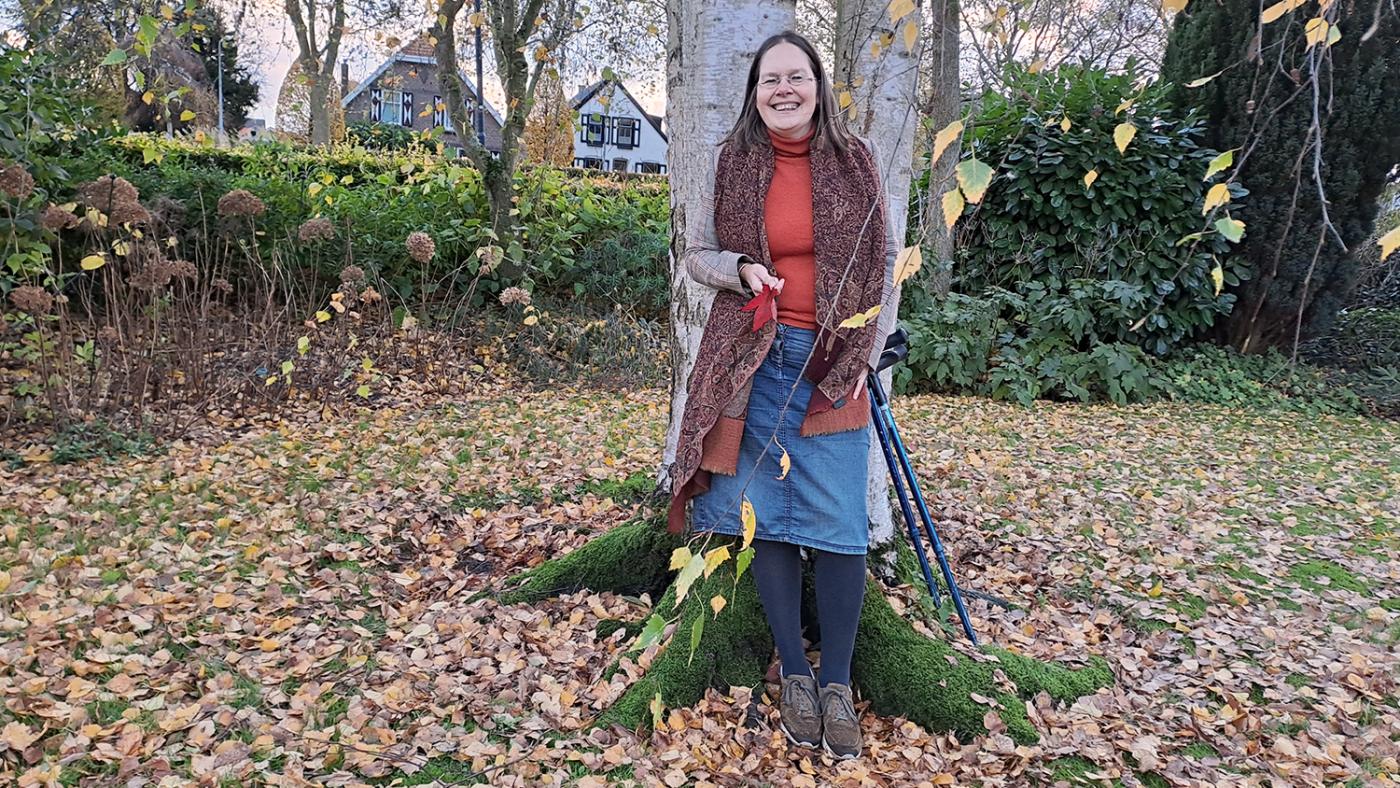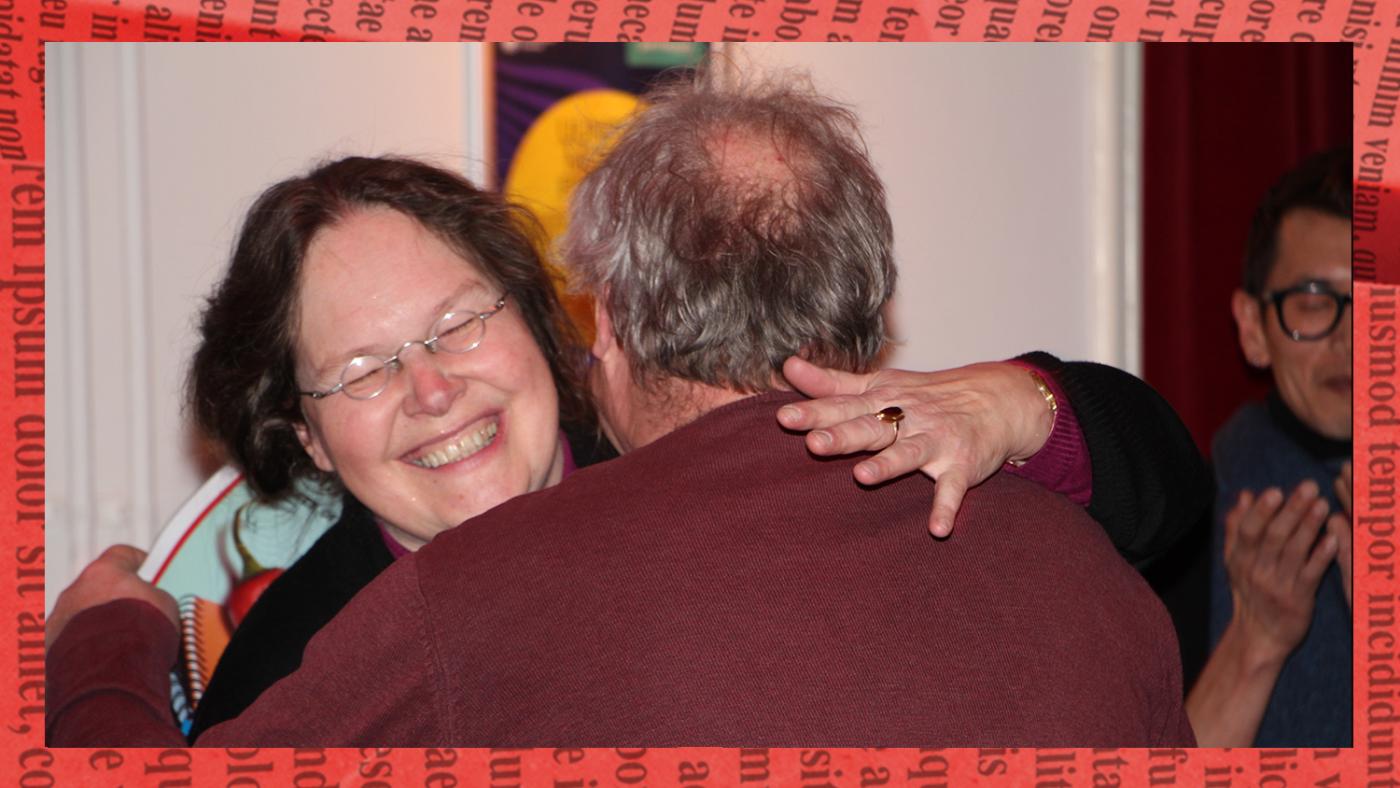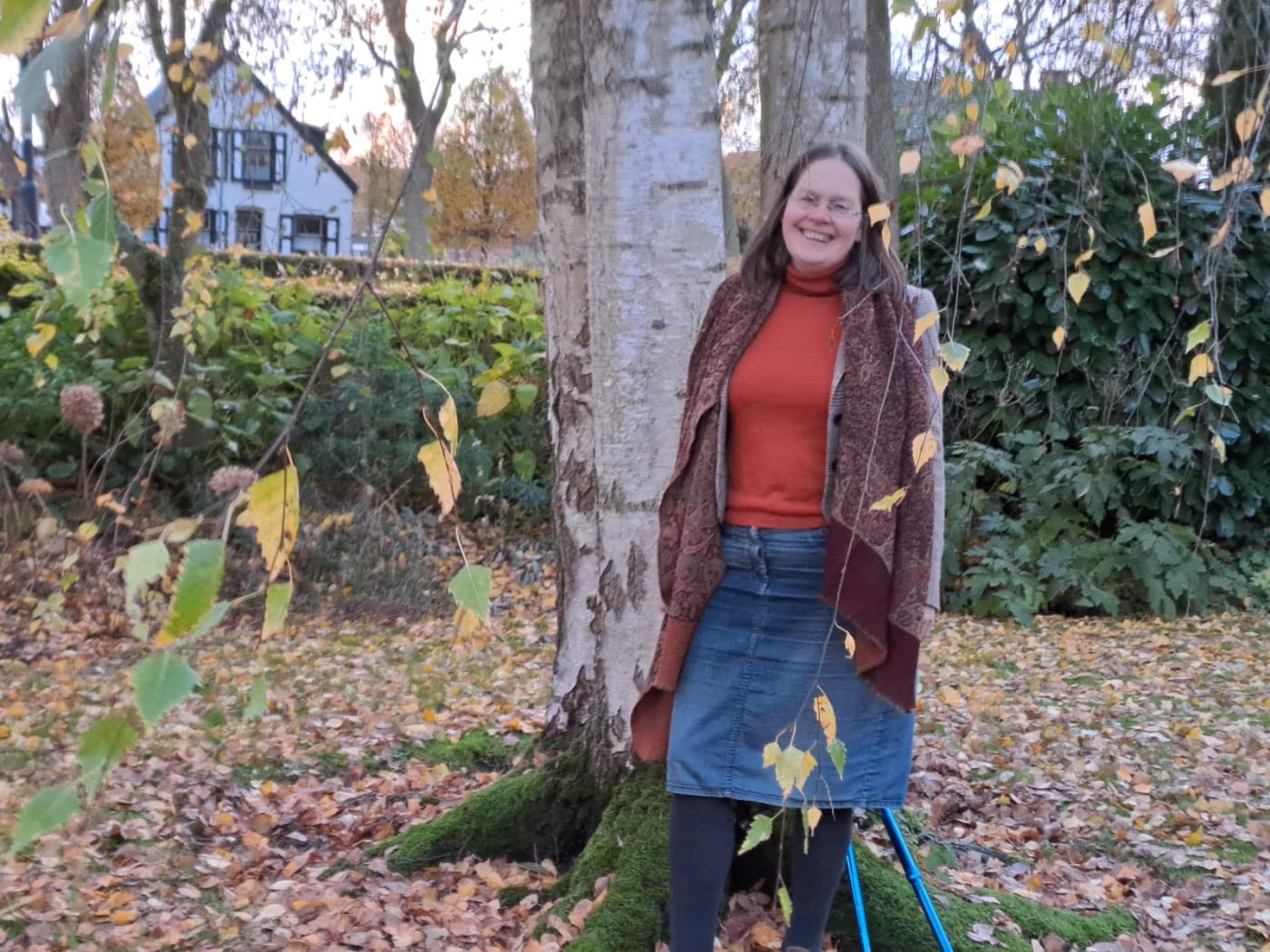What happened to the campus columnist for the English page?
‘I felt right away that something was wrong’

When Van de Ridder invited her neighbours for coffee, she didn't imagine the day would end with a serious accident. “Our house has a very deep cellar near the kitchen. I had gone down there to get something but forgot to close the hatch after I was done. Afterwards, as I took something from the counter to a cabinet near the hatch, I fell two metres down. I didn’t see it because the cellar’s lights were off.”
"I felt right away that something was wrong. I screamed 'Help!' but realised nobody could help me in that cellar as the stairs were steep and it was a small space. I’ve always worked in the medical field, so I knew our adrenaline rushes and we don’t feel pain, so I managed to go up the stairs by clawing at them. Once I was back in the kitchen, I noticed my foot was in an awkward position: it was almost next to my leg.”
Monica van de Ridder is an Educational Consultant at the Department of Educational Development & Training at Social & Behavioural Sciences. She joined UU in September 2023, after working in Michigan, USA, for almost a decade. In January 2024, she won the campus columnist competition and was eager to share her views with the rest of the UU community.

Monica van de Ridder hugs DUB Editor-in-Chief Ries Agterberg after winning the campus columnist contest in January 2023. Photo: DUB
Never back to normal
An ankle joint has three little knuckles. Van de Ridder tells us that all three were broken, which is pretty bad. “The surgeons told me this was a tough break and it would take long to heal. I assumed ‘long’ meant six, eight weeks and I could work from my bed.”
Things were quite different, however. At the hospital, Van de Ridder found out that her blood pressure was sky-high and her foot was too swollen, which made the doctors refrain from performing surgery right away. She was then put in a cast.
However, when one swells inside a cast, the swelling can’t go anywhere and the patient gets deep blisters because of the pressure. When those blisters pop, the patient gets an open wound, which makes surgery even riskier. “They had to cut the cast open to take the pressure off, but that also means that the bones weren’t stabilised anymore,” she explains.
After Van de Ridder underwent surgery, she had to stay in a rehabilitation centre and was only allowed to get out of bed one hour a day. This weakens the muscles and makes the patient feel frail.
Then, her physiotherapist discovered that she couldn’t move her toes anymore because her nerves had been damaged. This fundamentally alters the way one walks. “My foot will never go back to normal.” Now, she has to train all the little movements one needs to stand and walk again.
“Feels like a burnout”
She is doing much better now. She recently started walking short distances without crutches, though she must wear a brace and sometimes also an elastic sock. She sees her physiotherapist twice a week and does physiotherapy exercises for two hours daily.
She is also getting her energy back. “My physiotherapist told me that if you lay down for a whole day, it takes one week to recover. I was in bed for six or seven weeks. At first, it felt like I’d had a burnout.”
This experience has stressed the importance of a good company doctor, says Van de Ridder, who often wonders what would have happened had this accident taken place in the US. “I probably would not have wanted to lose my job, so I would have forced myself to go back to work as soon as possible.
In Michigan, paid sick leave is required for companies with 50 or more employees. Workers earn one hour of sick leave for every 35 hours worked. Up to 40 hours can be earned, but it can only be used after being employed for 90 days.
The way forward
Van de Ridder is now working two hours on a therapeutic base. It is more about getting back to her routine, seeing what she can and can’t do, rather than outcomes and results.
In January, she will increase her hours to four. Her temporary contract has been extended until May. “I’m worried because I’ll be working on a therapeutic basis in January. Then I’ll only have a few months and I have no clue how they will go. That’s something that keeps me up at night sometimes.”

Campus columnist
Van de Ridder thinks it’s a pity she couldn’t write more columns for DUB. “I would have liked to write about the differences between academia in the US and the Dutch academic system. For example, when you get sick in the US, those days get discounted from your vacation days – and you only get 16 of those.”
She also enjoys how academics are expected to reach out to the community in the US. “It counts for your promotion and is really valued by the university. It’s a way of paying back. This builds a bridge between academia and society that I don’t see here as much yet.”
Despite not having written many columns herself, she does have a few tips for UU students and employees interested in participating in the campus columnist contest. “Regular, day-to-day things, can provide you with a lot of inspiration. You just have to look at them. Keep it small. You always have to make choices and leave things out deliberately, so it goes a lot easier if you write about a small event or a specific aspect of a larger topic.”
She also recommends choosing topics that are “close to your heart”. Last but not least, “make sure you enjoy it! Writing a column shouldn’t feel like a burden.”
Do you want to be DUB's Campus Columnist in 2025? You have until December 1, 2024, to participate in our contest by sending two columns in English or Dutch. To learn more, please click here.
